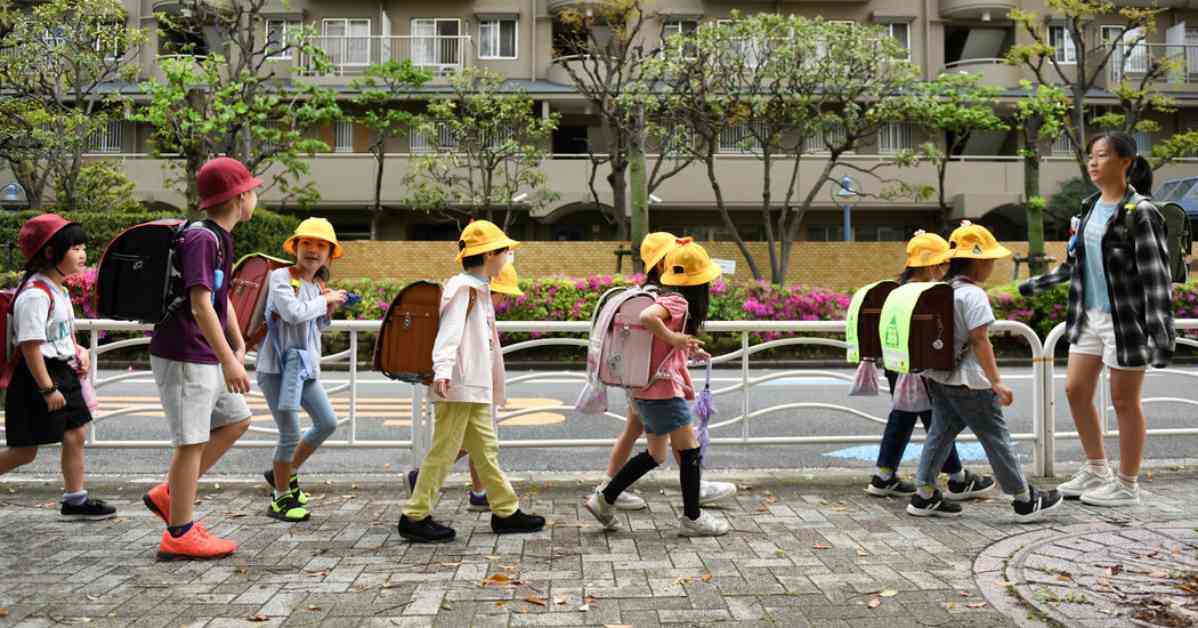In Japan, cultural expectations are deeply ingrained in children from a young age both at school and at home. Peer pressure plays a significant role in shaping behavior, often more so than specific rules or laws. This societal influence helps maintain order and harmony within Japanese society.
Even during the challenges of the coronavirus pandemic, where the government did not mandate masks or lockdowns, the majority of Japanese residents voluntarily wore face coverings in public and avoided crowded places. This adherence to social norms can be seen in everyday actions such as quietly standing in lines, following traffic signals, and cleaning up after events, all of which are behaviors instilled in individuals from a young age.
The tradition of carrying the iconic randoseru to school is a prime example of this cultural expectation. While not enforced by any official rule, the practice is upheld by everyone in the community. Shoko Fukushima, an associate professor of education administration, notes that carrying the randoseru is a collective effort rather than an individual obligation.
The significance of the randoseru is highlighted on the first day of school each spring, as first graders and their parents gather for entrance ceremonies. This moment, captured in countless family photo albums, symbolizes a rite of passage for Japanese children. The sight of young students proudly carrying their randoseru as they line up with their parents evokes a sense of tradition and continuity across generations.
The act of carrying the randoseru serves a practical purpose as well, as students transport textbooks and school supplies between home and school. The sturdy and structured design of the randoseru reflects the value placed on education and discipline in Japanese society.
Overall, the cultural significance of the randoseru goes beyond its function as a school bag. It embodies the collective responsibility and shared values that underpin Japanese societal norms. From a young age, children are taught to respect tradition, follow social expectations, and contribute to the community, shaping their behavior and identity as they grow.
In essence, the impact of book bags, such as the randoseru, on Japanese culture reveals the intricate interplay between tradition, social norms, and individual responsibility. This cultural artifact not only reflects the values of Japanese society but also serves as a tangible symbol of collective identity and communal harmony.




